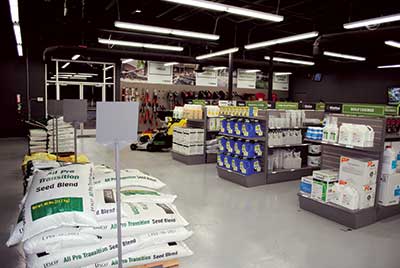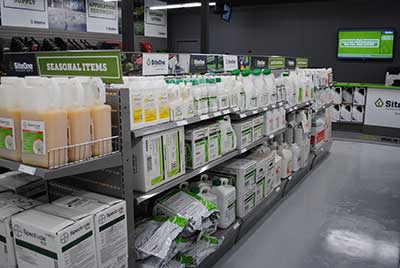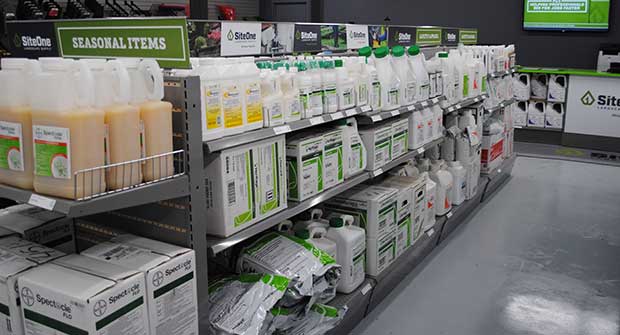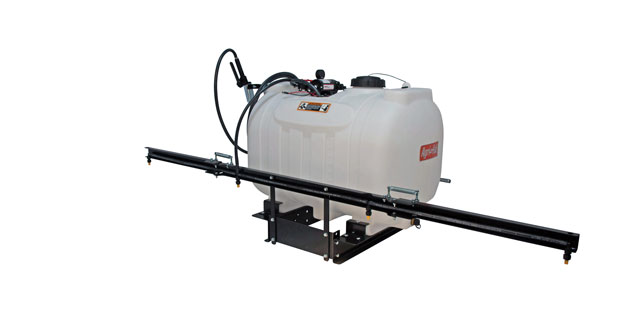
Incentives and industry insights strengthen landscaper-distributor relationships.
There’s no shortage of ways to source landscape supplies nowadays. But where and how you buy has almost become as important as what you’re purchasing. That’s one reason why many landscape contractors have come to increasingly rely on their distributors.
Distributors have responded by focusing on becoming a landscaper’s primary stop by acquiring smaller companies across the industry, expanding their footprints and providing a way for the owner to only deal with one rep for everything. Check out how a few landscapers lean on their distributors.
Buy in bulk
It’s like shopping at Costco: The more items you buy, the cheaper each one becomes. You might not need 100 rolls of toilet paper right now, but if you have the storage and cash to purchase them, you’ll save more than if you bought a few rolls along the way. That’s the approach Ed Castro, president of Ed Castro Landscape in Roswell, Ga., has taken with buying from distributors—but, of course, on a larger scale.
His company offers landscape design, installation, enhancement and maintenance. Its clients include high-end residential, commercial properties for maintenance and public sites (municipalities, sports fields, etc.). The company, which has a $9 million annual revenue, uses Site One Landscape Supply for plants, chemicals, landscape supplies and Greenworks Commercial battery-powered products — in addition to getting equipment from other dealers.
His team buys more pieces equipment at once, instead of spreading out the purchases when they’re needed. They’ve also started rotating out their equipment more often, which gives them better benefits from tax write-offs.
From September to November, the company starts planning what to buy for the year, discussing and understanding their needs, talking to vendors and identifying what they may buy in bulk.
This purchasing approach is partly sparked by better cash flow, Castro says, along with changes on the distributor side of things. Distributors are offering more incentives than they used to.
“If there’s an opportunity to get a small discount, we’ll do it,” Castro says about buying multiple products at once from a distributor.
He says his company also aligns its purchases with the distributors’ incentive schedules. In the South, he says, most of the deals fall around February.
Another contributor to this trend is how distributors and manufacturers as a whole have become more organized and connected to technology, Castro says. They’re tuned into what and when landscape contractors are purchasing and providing better incentives.
When deciding on the best payment option for their businesses, Castro encourages other owners to base it off of their growth plan.
“Cash isn’t always the best way to buy. Just because you have the money doesn’t mean you need to use it,” he says. “If you’re a growth company, use other people’s money. Keep cash, and use a finance option. If you’re not growing, you’re better off paying it off with cash.”
He encourages owners—especially those running smaller companies—to focus on their credit scores. And if they have questions or aren’t sure about something like logistics, they can turn to their distributor for support.
“Use your distributors as a resource—not just because they are close by and convenient,” Castro says. “We learn a lot from those guys.”
For example, Castro and his team talk with their SiteOne rep about what tree sizes are going to be available and what they will cost so they can more accurately spec projects for clients. They can also find out when certain pieces of equipment are about to change in price or be discontinued, he adds.
Stay stocked
A strong distributor partnership is also a theme with Darrin Selking, president of Landscape Illumination in Valparaiso, Ind. Landscape Illumination specializes in architectural, landscape and seasonal lighting for residential and commercial properties.
His distributor, Automatic Irrigation Supply, got him interested in outdoor lighting. And after working together for 16 years—and Automatic Irrigation Supply providing 90 percent of its products for projects—they have a solid system in place.
“They make deliveries to our facility three times a week,” Selking says. “I rely on them to stock and have available what we need on a daily basis.”
Although his distributor hasn’t changed through the years, the way Selking and other professionals approach pricing has.
“Because a lot of items are available online these days, distributors in general I believe have to stay on top of the price they are charging for their products because contractors do shop and compare one distributor to another,” he says. “We as a company sit down with our distributor on a yearly basis to review where we are cost wise on a per-item basis to make sure they’re competitive.”

Selking adds it’s not just about getting a good price. It’s also about the distributor having the product in-house and ready when he needs it.
He says he also enjoys distributor benefits like being able to warehouse products his company uses regularly, having someone with knowledge about the products they use and finding out about new products that are coming out. Distributors can give landscaping companies that extra edge they’re after.
“My distributor even provides employee training and educational seminars to help us in areas that we need more knowledge in,” he adds.
Just like landscape contractors are trying to stand out from the pack, distributors are doing the same to attract and keep customers and encourage more purchases.
“Within the past few years, our distributor has started a rewards program similar to what your major credit card companies offer,” Selking says. “You accumulate points based on purchases and then you can use them to purchase items, just about anything. A few years ago, I purchased a hot tub with my points I received from them. They also throw a yearly party for all of their customers as a way of saying thank you for your business.”
More distributors are blurring the line between business and personal life—the same way many successful contractors do with their clients.
The industry is built on relationships, not just projects and results. And distributors are proving to be an important part of that equation for many.
To pick the right distributor, Selking offers this simple advice: “Find a company who provides you with a fair price, the support and knowledge of the product you need to grow your business to the level you want to grow it too,” he says.
Photos: SiteOne Supply


